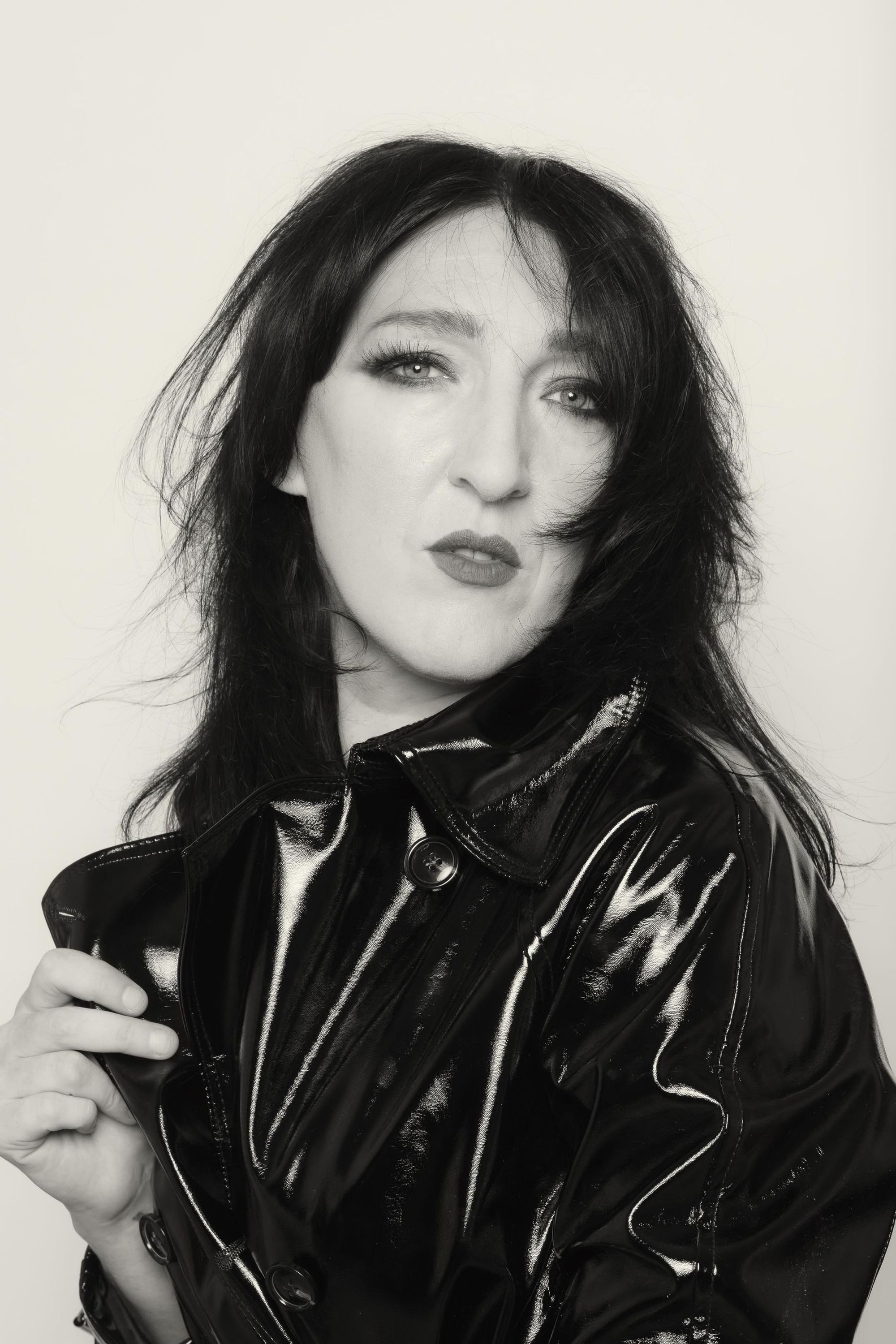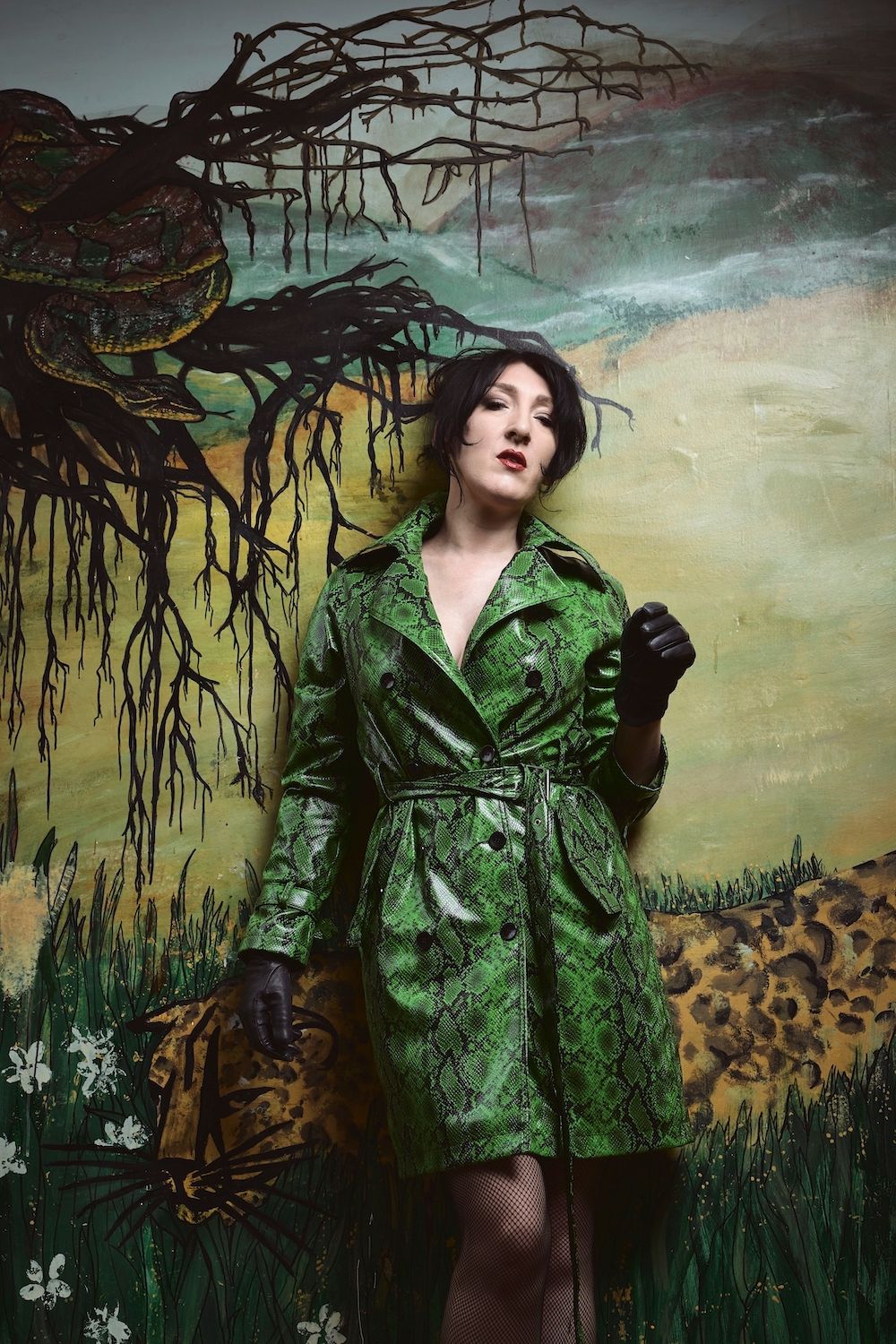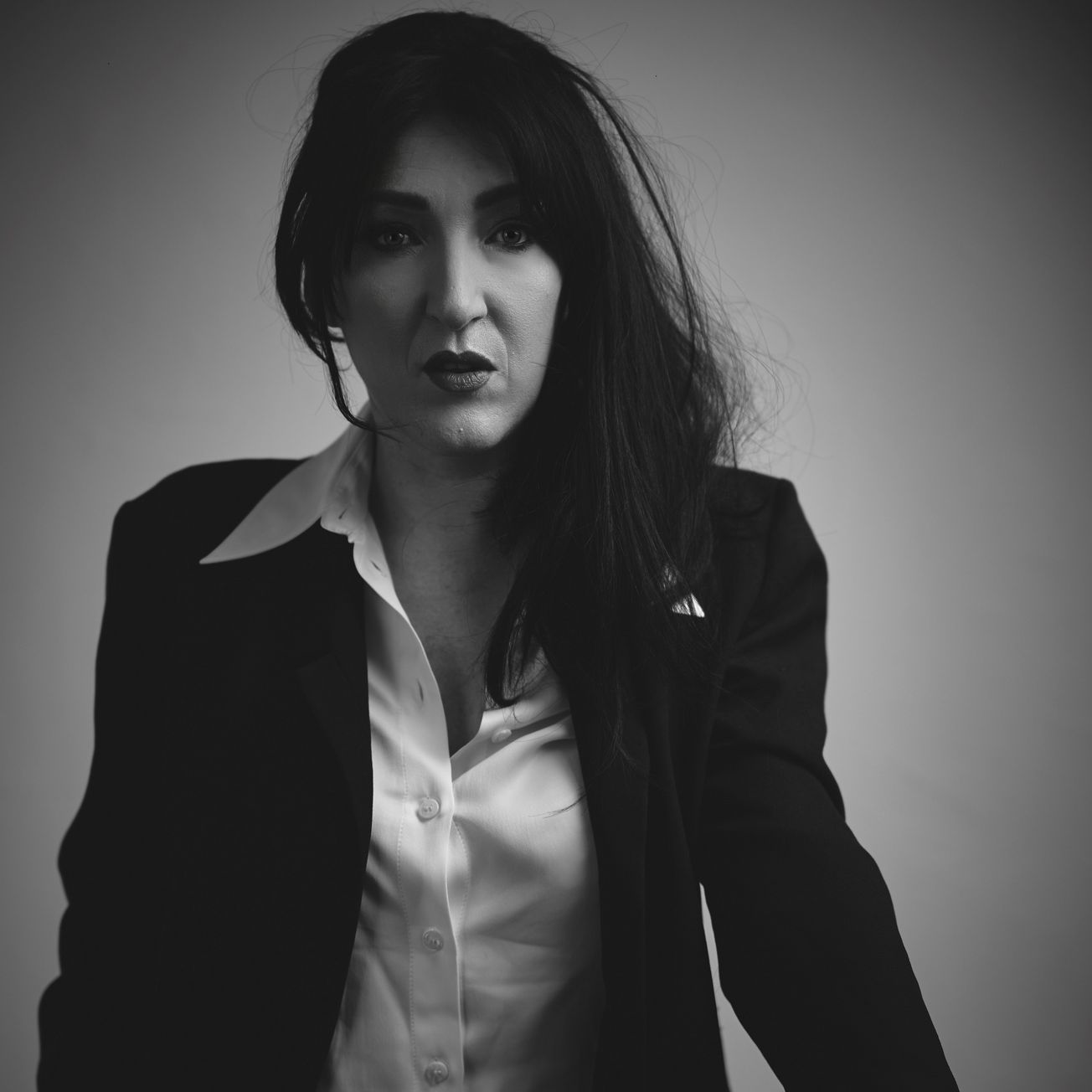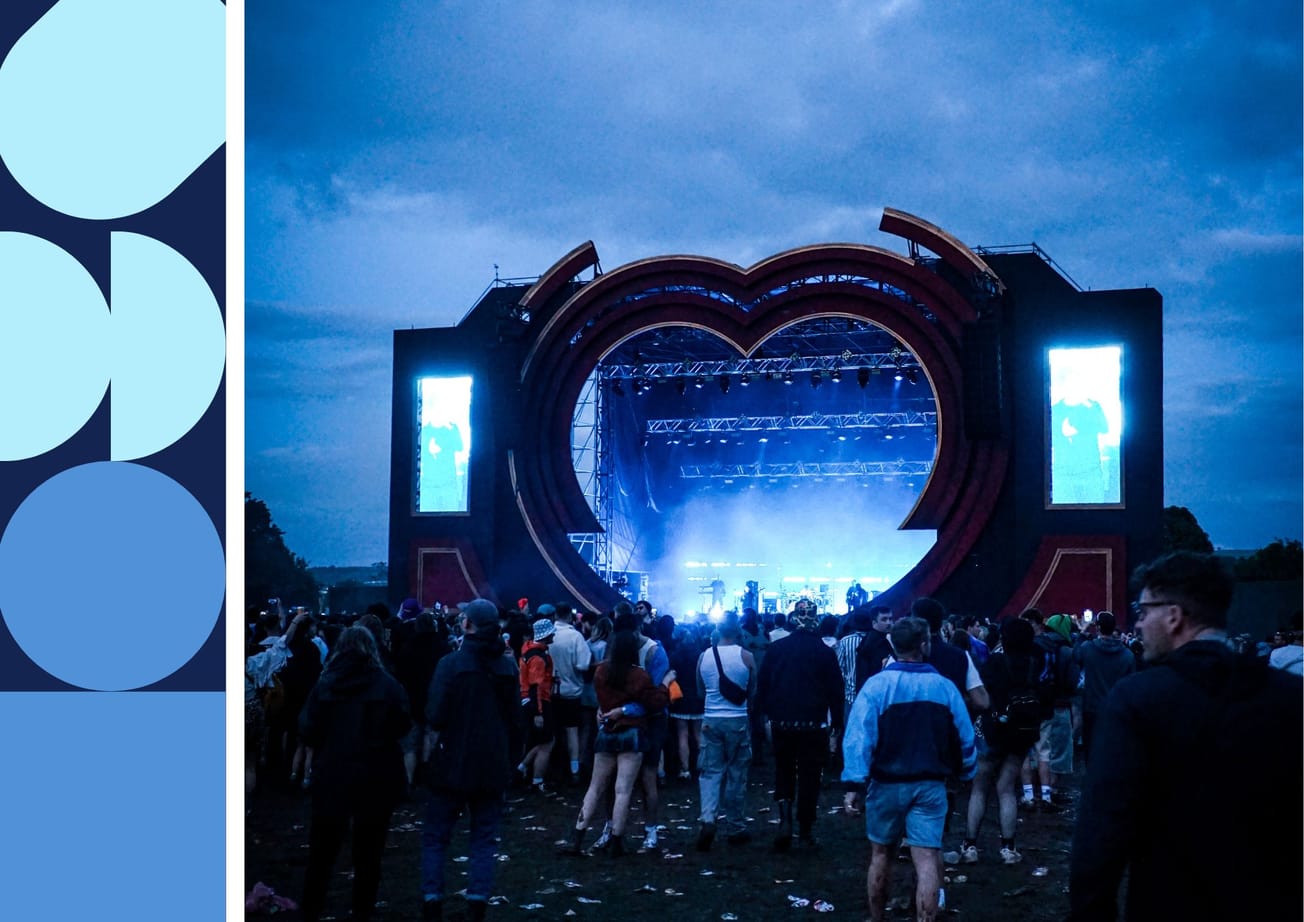by Milan Perera, Critic Columnist
Emily Breeze is an artist extraordinaire. The Sunday Times dubbed her “The love child of P.J Harvey and Johnny Cash”. This and many other epithets were heaped on her for the unique brand of music she crafted which is impossible to pigeonhole. It is a rich tapestry of myriad of music genres from post punk, glam pop, country to indie rock. Her journey as an artist is nothing short of extraordinary. One of the main criticisms levelled against many artists is that they lack the lived experience or they are cut off from the mundane realities of everyday life where they seem to dwell in their serene cocoons. She has lived experience in spades: she worked in waitressing, cleaning, painting and decorating and last but not least as a lecturer in music with a masters degree in songwriting under her belt. As the ideal pedagogue Emily Breeze is passionate about facilitating creativity, developing the artist persona and instilling good-old work ethics among aspiring musicians.
With a critically acclaimed debut 2019 album, Rituals, which received raving reviews and multiple spins on various radio stations, Breeze is back with her third album, Ordinary Life which is due to be released early next year. As a taster she released the hypnotic semi-autobiographical titular track, 'Ordinary Life' and 'The Bell' on the favourite British pastime of “going to the pub”.
Emily Breeze was born in London but has made Bristol her home for the last 20 years. As an adopted Bristolian with her Patti Smith/Chrissy Hinds persona, her music strikes a chord with Bristol’s own progressive and iconoclastic brand of music which produced the likes of Massive Attack.
In her new album, Emily Breeze’s searing vocals are deftly accompanied with the majestic guitar shreds of Rob Norbury and the frenetic drum and bass of Andy Sutor and Graham Dalzell. Despite her frantic schedule, Epigram managed to catch up with her on her latest album, Ordinary Life due in January 2023.
*Congratulations on your new single. Your third album won't be due until next January. Is this a taster of the things to come?
“It probably should be as this is the song that seems to have struck a chord and it certainly occupies the same world as our last single 'Confessions of an Ageing Party Girl' although we have still retained much of the cosmic torch song energy of our last album Rituals. There are more high energy songs though such as Electro hymn 'Dance with Rats' and New Wave rocker 'The Bell'. I have described the album as a collection of coming-of (middle) age stories which celebrate flamboyant failure, excess and acceptance. It occurred to me that this is an interesting phase of life which gets overlooked in the narrative of popular music. It was also just what was happening in my own life at the time so it was an obvious source of inspiration. By the way kids, I am 42 and having the time of my f****g life. Fear nothing!”

*"Ordinary Life" is a beautiful Introspective track. Could you tell us about how you come about it? Was there a Damascene moment as such? Is it a reflective autobiographical track?
“I actually can't remember much about writing this song but I know that I wrote it quickly which usually means it will be as easy to listen to as it was to create. This is a frustrating aspect of songwriting because you can’t predict the outcome, you just have to keep turning up. As Leonard Cohen said “If I knew where the good songs come from I would go there more often”. The backbone of the song is a very simple three note riff and the hookline “there's nothing wrong with an ordinary life” was inspired by the Alain De Botton piece “In praise of an ordinary life” . The first two verses are about the early 2000’s when you could survive on the dole and listen out for speakers in Montpelier to find house parties, it was a different world back then with a much more robust economy and no one had the internet jangling furiously in their pockets. We thought that success would just happen to us without really understanding what it takes to get there and how bad the odds are even if you have your shit together (which none of us did). There was a sort of wild, sad vitality to those years. The last verse is set in the present at a “ friend's 40th birthday party wondering how the days turned into decades and if anyone still does drugs' which is exactly what happened. It is quite an innocent and optimistic song for an old cynic like me but I still get my claws out for a few lines. Besides, cynicism is lazy.”
*As a performer you are simply outstanding. Can't help but draw parallels with artists such as Chrissie Hinds, Annie Lennox and Amanda Palmer. How do you approach live performances. How important is it for you to connect with audiences at an intimate level?
“That's very kind of you, thanks. I don’t think about performance very much, I just get up there and do it. Delivering the songs is the intention (and trying not to fuck up). If you can lose yourself in it, the audience can too. At best it is a kind of outer body experience which is why it’s so addictive (at worst it is like one of those anxiety dreams where you are naked in P.E at school). I still get waves of stage fright before gigs but the band are amazing, Rob Norbury (lead guitar) Andy Sutor (drums) Helen Stanley (keys/synth) and George Caveney (bass) are quite the engine to stand in front of which allows me to tart, crawl, slither and stagger all over the stage with confidence.”
*How did the pandemic affect your creative output? Did it serve as a blessing in disguise at any point where you could focus for a longer period of time to write and record without the strains of touring?
“I remember all my muso mates saying “I just miss performing and rehearsing so much” and I thought well I bloody don’t, I was fine with having a break from dragging my bones into rehearsal after work and organising things and worrying about gigs. Don’t get me wrong, I do love being a musician. Well, I kind of love it but I hate it too. Any sane person would but I don't really have any choice. It's just what I do and I get weird when I try to quit. Anyway, back to the pandemic, I was very lucky not to lose my income as many of my friends in the events and entertainment industry did but I also wasn't lucky enough to be furloughed and bake banana bread. Instead I taught songwriting and performance over zoom for the university I work for. Teaching a practical subject through a computer screen to a load of lovely young people who are having a really shit time alongside all the daily horror of the pandemic was very draining and a bit heartbreaking and it left me with nothing, less than nothing. I was in negative equity in terms of ideas and inspiration. Then the summer came and I was off work and apart from going utterly fucking mad for a bit I wrote three of the best songs I think I have ever written. Ordinary Life, Part of Me and The Bell. I have no idea if I should thank the pandemic for that or not but at least I haven't written a song about Lockdown called Lockdown.”

*You are a proud Bristolian. Tell us about your journey. Where were you born? What was your first exposure to music? Was there a particular musical epiphany during your formative years? Who were your musical inspirations? Emily, we can't thank you enough.
“I really do love Bristol, I have been here for 22 years. Before that I lived in Bath and was born in Peckham in London which is where my parents are from. My mum is an Irish fiddle player so there was always music in the house alongside my parents Blues, Ska and Reggae and Rock n Roll records. As a teenager scraped my way onto an art A level with my 3 GCSEs before promptly announcing that it was “shit” and quitting to get stoned and depressed and work in cafes instead. I read a lot in that era though and I watched a lot of art films and music documentaries and hung around with a lot of musicians who were equally as stoned as they were talented and I wanted to be like them so I wrote odd spidery guitar pieces in private and swore I would never sing because “lyrics aren't important man, it's all about the music”. In terms of an epiphany I remember when I was about 16 watching a Nu Metal band called (believe it or not) Fat Mans Tracksuit, they were in our circle of friends and I thought they were soooooo cool and something clicked where instead of wanting to be the girlfriend of someone in a band I realised I wanted to be in a band myself but it took me years to get the confidence to do anything about it. In terms of musical inspirations once I got out of my Nu Metal Phase it was all about 1960s psychedelic Rock and Soul. Hendrix, Santana, Frank Zappa, Captain Beefheart, Otis Redding, Areatha Franklin, Booker T and the MG’s, Jazz, Charles Mingus Ornette Coleman, Nina Simone, Garage Rock and Proto Punk Stooges, Television, Danzig era Misfits, I could go on for hours here but I eventually found my voice through the storytellers. Bob Dylan, Tom Waits, Nick Cave, Leonard Cohen, Patti Smith and Jarvis Cocker. I am not a technically accomplished singer and my guitar playing is fine but unremarkable, so it was through those anti heroes with their inky black silhouettes that I found something I could shine in. Using words, taste, style and character to create my own weird world.”
Listen to Emily Breeze's music here:
Have you listened to Emily Breeze yet?








